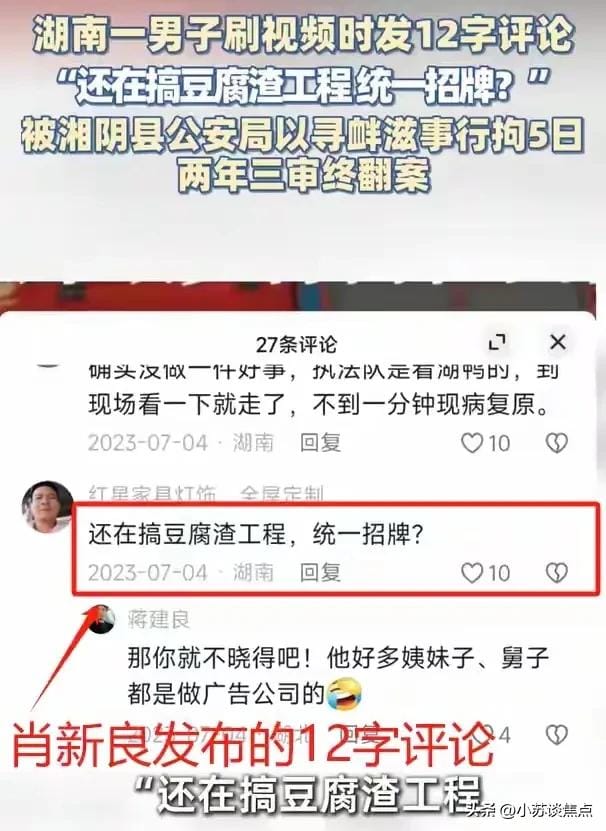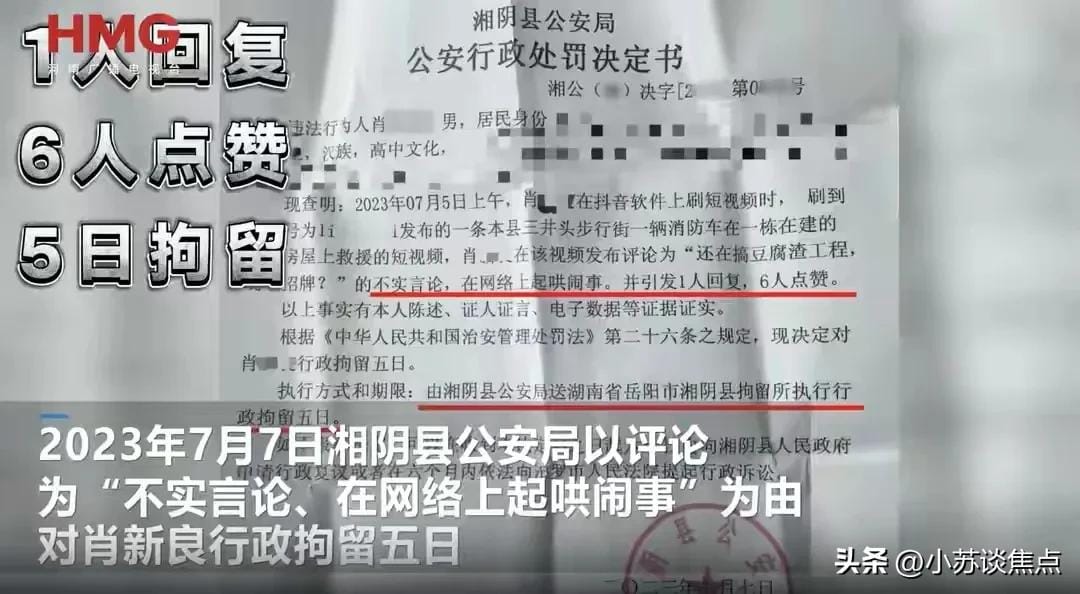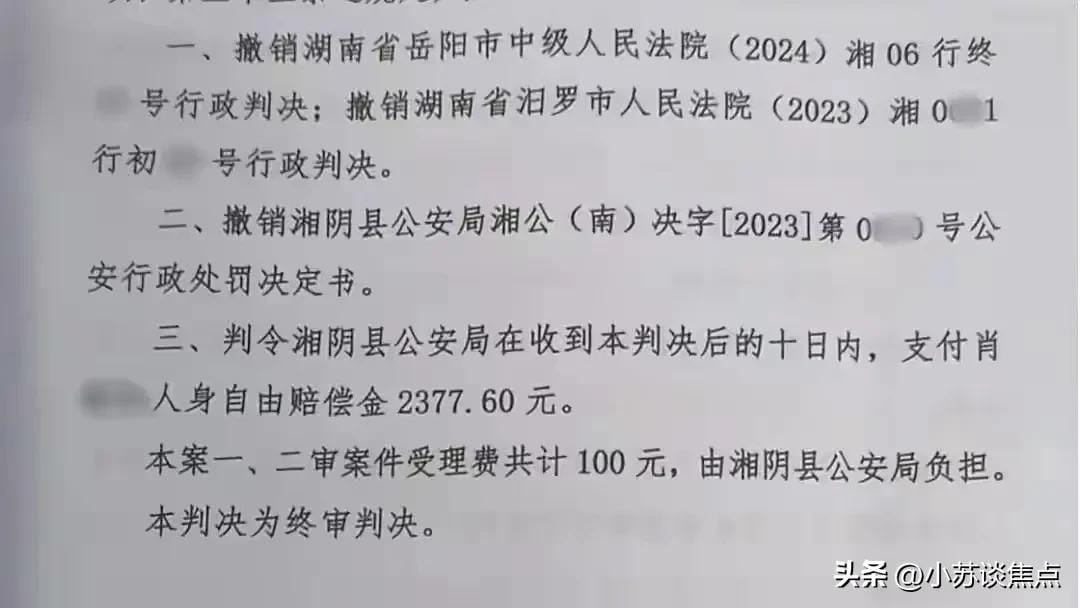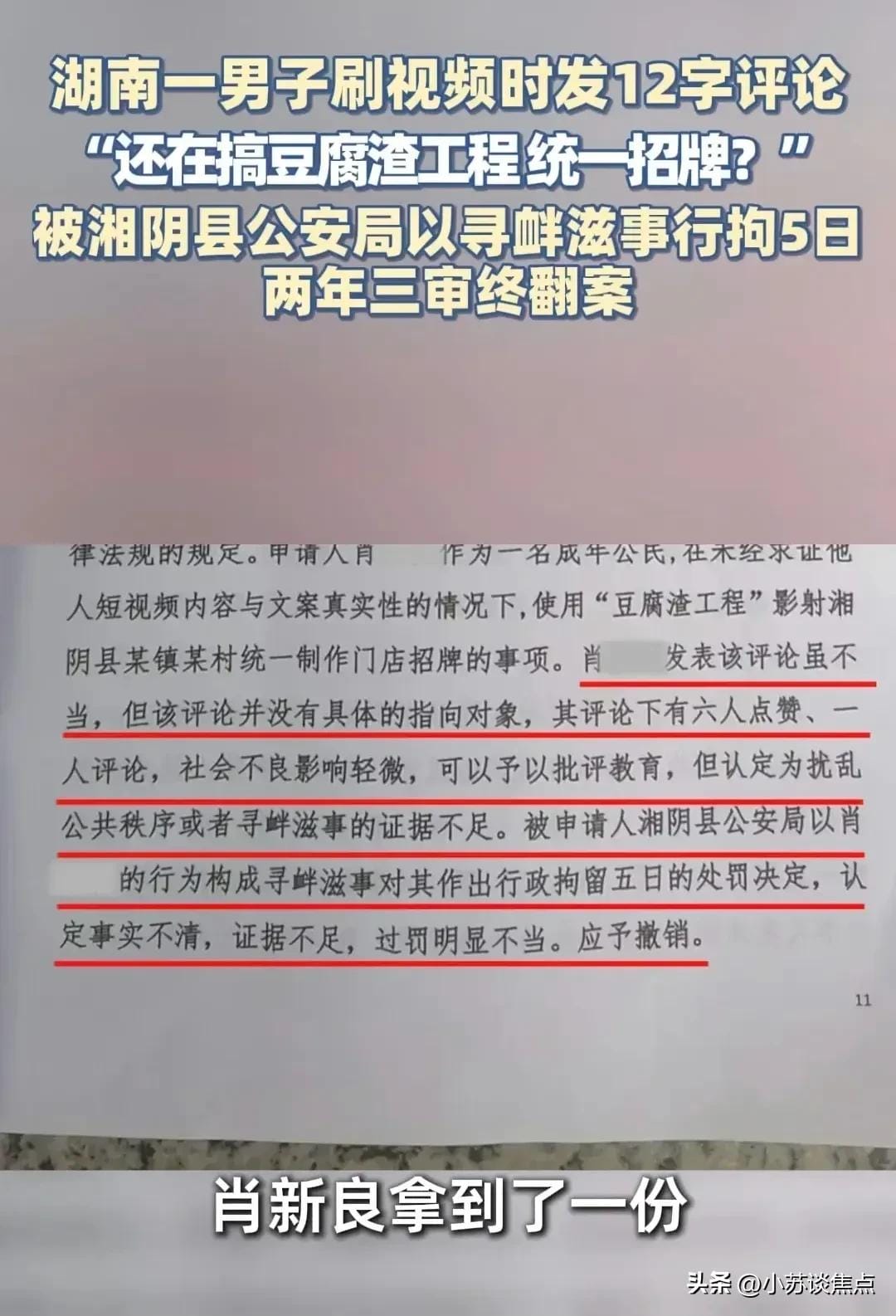Hunan Man's 12-Word Comment Case Overturned After Two Years
A Hunan man detained for a brief online comment wins appeal after two years, highlighting legal limits on free speech and government power.

The Unjust Detention Over a 12-Word Comment
In July 2023, Xiao, a man from Hunan Province, found himself at the center of a legal storm all because of a seemingly harmless comment. While watching a rescue video where someone fell onto scaffolding during a building's facade renovation, Xiao posted a brief 12-character comment questioning the workmanship: "Still doing Shoddy Project, unifying shop signs?" What followed was a five-day detention by the Xiangyin County Public Security Bureau, labeled as "false remarks" and "online incitement and troublemaking".
This harsh reaction to a short piece of online criticism sparked heated debate. Was Xiao exercising his right to express concerns, or had he crossed a line? The case quickly became a focal point for discussions on the fragile boundaries of online speech in modern China. 📱💬

Legal Battles and Overturned Verdict
Refusing to accept his detention quietly, Xiao launched an administrative lawsuit. After defeats in both initial trials, he appealed to the Hunan Provincial Higher People's Court. Finally, in June 2024, justice took a turn. The Higher People's Court reviewed the case and overturned the original guilty verdict, citing several key points:
- Insufficient main evidence supporting the accusations.
- Incorrect application of the law.
- Minimal negative social impact with just six likes and one comment.
- A recommendation for educational measures over punitive detention.
Ultimately, Xiao's administrative penalty was revoked, and he was awarded a compensation of 2377 yuan for the violation of his personal freedom. This ruling sent a powerful message: **Legal power should be wielded responsibly and proportionality matters. ** 🎉⚖️

The Broader Implications: Online Speech and Government Power
This case is more than just a win for Xiao; it's a reflection on the complex interplay between freedom of expression and state control. While Xiao’s comment may have been speculative and arguably misleading, the punishment did not fit what many viewed as a minor offense. The two-year legal saga and initial five-day detention seemed disproportionate to the nature of the online critique.
The court’s decision highlighted the misconception that any form of criticism attracts harsh punishments — an approach that risks undermining legal credibility. It underscored the need for stricter oversight on how authorities handle online speech and reinforced that unchecked power voids its legitimacy.
For everyday netizens and commentators, the ruling offers a glimmer of hope. It reminds us that speaking out, even with some imperfections, should not lead to harsh repression. 🗣️✨

What Can We Learn from Xiao's Journey?
First, censorship can backfire when applied without nuance. Xiao's brief critique wasn’t a call to chaos but a sharp-eyed reflection on quality and safety concerns in construction. Second, persistence pays off. Xiao’s refusal to accept injustice led to meaningful change, not only for himself but potentially for others facing similar issues.
And finally, this case serves as a wake-up call for governments everywhere: the internet is a platform for dialogue and improvement, not fear and silence. If authorities truly want progress, embracing constructive criticism — rather than suppressing it — is the way forward. 🚀🌍





